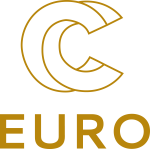- Indico style
- Indico style - inline minutes
- Indico style - numbered
- Indico style - numbered + minutes
- Indico Weeks View
[ON-LINE] Quantum Computing Workshop
→
UTC
[ON-LINE]
[ON-LINE]
,
Description

Due to the rapid progress in the development of quantum technologies, the number of their applications will increase in the coming decades. These include quantum computing and its use in practice. To follow this evolution, IT4Innovations offers this workshop to its users and a wider audience to present the latest progress in quantum computing in the area of quantum machine learning, quantum variational algorithms, and the expansion of quantum computers and simulators.
Speakers
Sabine Keravel, Quantum sales operations, ATOS
Atos Quantum – From learning to solving practical use cases
Quantum Computing is no longer a theoretical-physicists-only playground. Numerous use cases have been identified, which will benefit from a quantum advantage in the coming years. Discover how Atos guides end-users through this journey.
Łukasz Pawela
Quantum machine learning: will it work?
During the talk we will explore the possibilities for levaraging quantum computing in machine learning tasks. The realm of quantum computation forces us to focus not only on learning with classical data. We can venture beyond, to the field of quantum data, which seems to greatly enhance our learning power. During the presentation we will explore, when this statement might hold.
Piotr Gawron
Introduction to quantum variational algorithms
Variational quantum algorithms exploit the capacity of existing Near
Intermediate Scale Quantum computers to calculate expectation values of
functions defined by quantum states, unitary operations and quantum
observables. There exists a variety of applications of such algorithms
solving problems in combinatorial optimization, simulation of physical
systems and machine learning.
Frank Leymann
Variational Quantum Algorithms: Origin, Potentials and Problems
Today’s quantum computers are noisy, i.e. only algorithms that spent a short amount of time can be successfully executed. This can be achieved by hybrid algorithms that split their work between a classical computer and a CPU. In this talk we focus on the often used subcategory of variational quantum algorithms, describe their principles and sketch the workhorses VQE and QAOA. The promising technique of warm starting algorithms and their origin are described. Problems and potentials are scratched to show lots of research opportunities in this domain.
Acknowledgements



This event was supported by the EuroCC project. This project has received funding from the European High-Performance Computing Joint Undertaking (JU) under grant agreement No 951732. The JU receives support from the European Union’s Horizon 2020 research and innovation programme and Germany, Bulgaria, Austria, Croatia, Cyprus, the Czech Republic, Denmark, Estonia, Finland, Greece, Hungary, Ireland, Italy, Lithuania, Latvia, Poland, Portugal, Romania, Slovenia, Spain, Sweden, the United Kingdom, France, the Netherlands, Belgium, Luxembourg, Slovakia, Norway, Switzerland, Turkey, Republic of North Macedonia, Iceland, Montenegro. This project has received funding from the Ministry of Education, Youth and Sports of the Czech Republic (ID:MC2101).

This event is supported by the Ministry of Education, Youth and Sports of the Czech Republic through the e-INFRA CZ (ID:90140).
All presentations and educational materials of this course are provided under the Creative Commons Attribution-ShareAlike 4.0 International (CC BY-SA 4.0) license.
If you have any questions please do not hesitate to contact us at:
